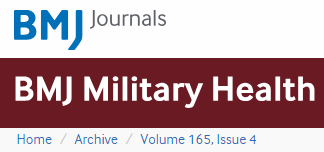Global health diplomacy and humanitarian assistance: understanding the intentional divide between military and non-military actors

Type: Article
Description: Often known as ‘ global health diplomacy ’, the provision of medical care to accomplish strategic objectives, advance public diplomacy goals and enhance soft power is increasingly emphasised in international affairs and military policies. Despite this emergent trend, there has been little critical analysis and examination of the ethics of military actors engaging in this type of work.
This type of mission represents the most common form of military medical deployment within the International Security Assistance Force in Afghanistan and is now explicitly emphasised in many militaries’ defence doctrine. The growth of these programmes has occurred with little analysis, examination or critique. This paper examines the history of global health diplomacy as directly related to humanitarian assistance, focusing on the difference in intention to highlight ethical dilemmas related to military involvement in the humanitarian sphere. The relationship between non-military humanitarian actors and military actors will be a focal point of discussion, as this relationship has been historically complicated and continues to shift. Relevant differences between these two groups of actors, their motivations and work will be highlighted. In order to examine the morally important differences between these groups, analysis will draw on relevant international doctrine and codes that attempt to provide ethical guidance within the humanitarian sphere.
Author: Sheena M. Eagan
Published in: BMJ Military Health Vol. 165, Issue 4
Published by: BMJ Journals
Publication time and place: 2019, London, United Kingdom
Pages: 3
Publication page: https://militaryhealth.bmj.com/content/165/4/244
TOPICS/Subjects:
- CLIMATE CHANGE
- Vulnerability
- DISASTER RESPONSE
- Civil Military Cooperation
- Humanitarian Assistance and Disaster Relief (HADR)
- CLIMATE AND SECURITY
- National Security
Other topics: Diplomacy
Citation and abstract used by permission of BMJ Publishing Group Ltd. / BMJ Military Health / License 5718181048200 / Jan 29, 2024